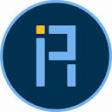IARPA posts draft FOCUS BAA
 The Intelligence Advance Research Projects Activity (IARPA) is seeking interested parties to thoroughly review the Draft BAA Funding Opportunity Description and provide comments, questions, suggested changes, and feedback by October 27.
The Intelligence Advance Research Projects Activity (IARPA) is seeking interested parties to thoroughly review the Draft BAA Funding Opportunity Description and provide comments, questions, suggested changes, and feedback by October 27.
IARPA does not anticipate posting responses to any comments, questions, suggested changes, and/or feedback received; however, all input will be considered in developing the Final BAA. Additionally, the Draft BAA Funding Opportunity Description is subject to change in the development of the Final BAA as a result of IARPA’s consideration of the input received from interested parties in response to the Draft BAA OR as needed based on IARPA requirements.
This BAA (IARPA-BAA-17-08) is for the Forecasting Counterfactuals in Uncontrolled Settings (FOCUS) program. IARPA is seeking innovative solutions for the FOCUS program in this BAA. The FOCUS program is envisioned to begin July 2018.
The FOCUS program seeks to develop and empirically evaluate systematic approaches to counterfactual forecasting. Counterfactual forecasts are statements about what would have happened if different circumstances had occurred. For example, a post mortem of an analysis failure may lead to a conclusion that analysts would have avoided the failure if they employed better tradecraft; perhaps by having double checked assumptions, perhaps by having considered a broader range of hypotheses, etc. Counterfactual forecasts about what would have worked in past circumstances are very often the basis for lessons learned for what to do in the future. And such lessons often evolve, over time, into best practices and tradecraft.
To date there has been little in the way of research that measures the extent to which different approaches to counterfactual forecasting yield accurate vs. inaccurate counterfactual forecasts. And there is a similar paucity of research on the accuracy of lessons drawn from different lessons-learned approaches. As a result, there does not exist evidence-based guidance for approaching post mortem, lessons learned activities and for developing the counterfactual forecasts that are at the core of such activities; and also unfortunately there is correspondingly little evidence supporting a claim that the lessons learned from such activities are usually the right lessons.
FOCUS will address this research gap by developing and empirically testing alternative approaches to structuring the counterfactual forecasting process in ways that can be readily incorporated into lessons-learned activities related to improving analyses and analytic tradecraft. FOCUS will concentrate on cognitive methods that systematically step individuals and teams through a series of considerations during counterfactual reasoning.
Full information is available here.
Source: FedBizOpps







